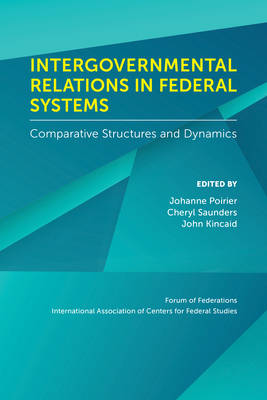
- Afhalen na 1 uur in een winkel met voorraad
- Gratis thuislevering in België vanaf € 30
- Ruim aanbod met 7 miljoen producten
- Afhalen na 1 uur in een winkel met voorraad
- Gratis thuislevering in België vanaf € 30
- Ruim aanbod met 7 miljoen producten
Zoeken
Intergovernmental Relations in Federal Systems
Johanne (Peter MacKell Chair in Federalism at the Faculty of Law, Cheryl (Laureate Professor Emeritus of Law, Laureate Professor E, John (Robert B. and Helen S. Meyner Professor of Government and
Hardcover
€ 71,45
+ 142 punten
Omschrijving
This comparative volume on intergovernmental relations in twelve federal countries and the European Union explores one of the most vital operational aspects of federalism: interactions among orders and units of government in federal and quasi-federal systems.
Specificaties
Betrokkenen
- Auteur(s):
- Uitgeverij:
Inhoud
- Aantal bladzijden:
- 528
Eigenschappen
- Productcode (EAN):
- 9780199022267
- Verschijningsdatum:
- 29/10/2015
- Uitvoering:
- Hardcover
- Afmetingen:
- 162 mm x 236 mm
- Gewicht:
- 816 g

Alleen bij Standaard Boekhandel
+ 142 punten op je klantenkaart van Standaard Boekhandel
Beoordelingen
We publiceren alleen reviews die voldoen aan de voorwaarden voor reviews. Bekijk onze voorwaarden voor reviews.







